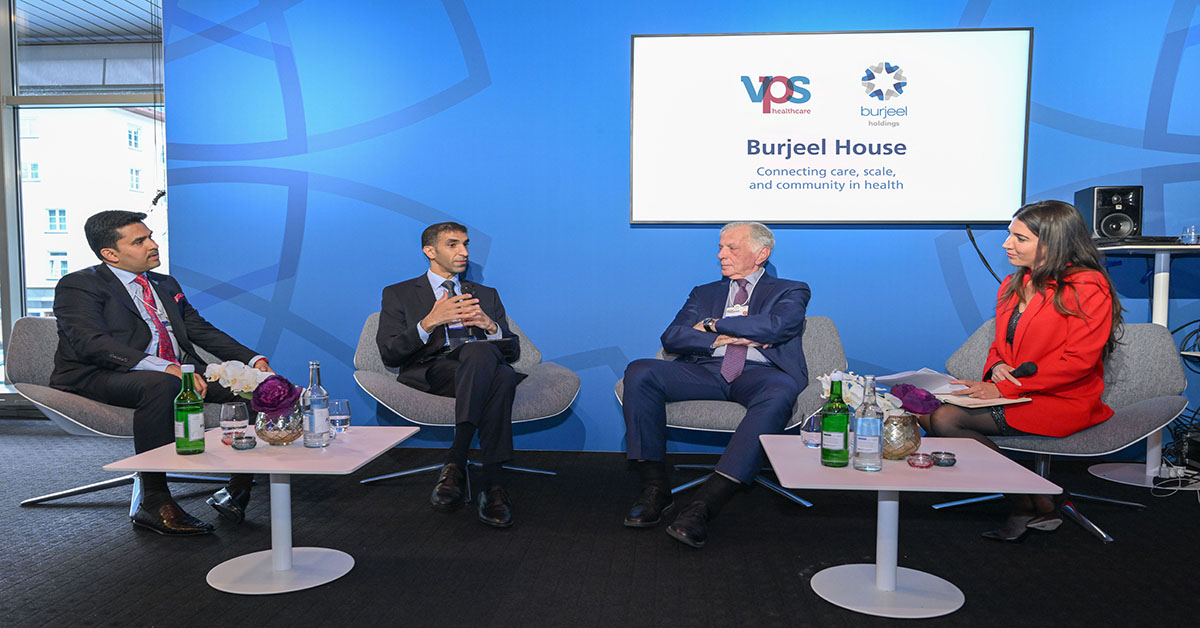The United Arab Emirate’s handling of the COVID-19 pandemic has been praised by a panel of experts during the annual World Economic Forum in Davos.
The panel discussion, held on Wednesday, also heard experts discuss the historic Abraham Accords signed between the UAE and Israel in 2020, saying it presented a huge opportunity for increased medical technological advancement through collaboration between healthcare actors in the region.
The UAE earlier this year topped the list of countries with a population of over one million in addressing the COVID-19 pandemic, in terms of rate of fully vaccinated individuals, according to an index released by Our World In Data.
The UAE also ranked second globally in terms of the number of tests conducted per 1,000 people, fourth in terms of vaccinated individuals per 100 people, and first in recipients receiving at least one vaccine dose,
During the panel discussion, Dr Thani bin Ahmed Al Zeyoudi, the UAE Minister of State for Foreign Trade, said that the knowledge exchange between the UAE and Israel during the pandemic was an excellent example of bilateral cooperation.
“There was a medical exchange between both the countries during the pandemic and work was done on research on the virus, the vaccine, etc. It expedited many things and we saw some of the concrete outcomes impacting the control of the COVID-19 within the UAE,” said Dr Thani.
He was a part of the panel discussion on ‘Abraham Accords: An Unexplored Vehicle for Health Innovation’, organized by the UAE-based VPS Healthcare at Burjeel House in Davos.
The session also featured Dr Shamsheer Vayalil, chairman of VPS Healthcare, and Itamar Rabinovich, former ambassador of Israel to the US.
Dr Vayalil also highlighted how the UAE set a new model through proactive initiatives and interventions during the pandemic.
“I remember a speech by Sheikh Mohammed bin Zayed Al Nahyan, President of the UAE, ensuring no person living in the country would be left short of medicine or food. I think that was a good start.
“We were all enthused by the commitment, we were all part of that fight against COVID-19. The UAE set a new model of public-private partnership during the pandemic, and it has the potential to go around the world,” he said.
At the onset of the pandemic, VPS worked with the government to implement heat scanners to screen passengers entering the airport and was also one of the first healthcare groups to transform its flagship hospital – Burjeel Medical City – into a COVID-19 dedicated hospital, with 400 beds ready for infected patients and rolled-out one of the largest vaccination missions, with more than five million vaccines administered to date.
Earlier this year, Dr Vayalil, in an interview with Al Arabiya English, said pandemic response is no longer a key priority for the health company, saying the world must now learn to live with COVID-19.
Dr Thani also discussed the signing of the Abraham Accords, saying in less than two years bilateral trade between the UAE and Israel has increased to more than $2.5 billion.
“In the first quarter of this year, we exceeded $1 billion,” Dr Thani, adding that the UAE is keen to engage with and capitalize on Israel’s strong healthcare sector. “We announced two years ago, $3 billion of R&D funds for more engagement in the region.
“We are about to sign the free trade agreements, sending a strong message that the potential is high and concrete projects are happening.”
Praising the cooperation between Israel and the UAE on different areas, Rabinovich said that tangible action should be taken to keep up the momentum.
“The UAE participated in a very important project where we are producing both water and electricity in Jordan,” he said. “The UAE plays a crucial role in this project.
“The relationship has begun well and is proceeding well.”
‘Accords beneficial to health sector’
Dr Vayalil said that the healthcare sector is one of the biggest beneficiaries of the Abraham Accords – highlighting the potential partnerships between the UAE and Israel could have huge ramifications for the entire region.
“Health is one of the biggest bridges that can bind nations and people,” he said. “We have seen a lot of bilateral movements between Israeli research companies and research organizations.
“The next big disruption can come through some of these research collaborations. The opportunities are getting bigger because of the capital pool in Abu Dhabi and the research talent from Israel.
“As a healthcare company, we are very excited to be a part of this time in the relationship.”
Read Full Story: alarabiya | Khaleejtimes







